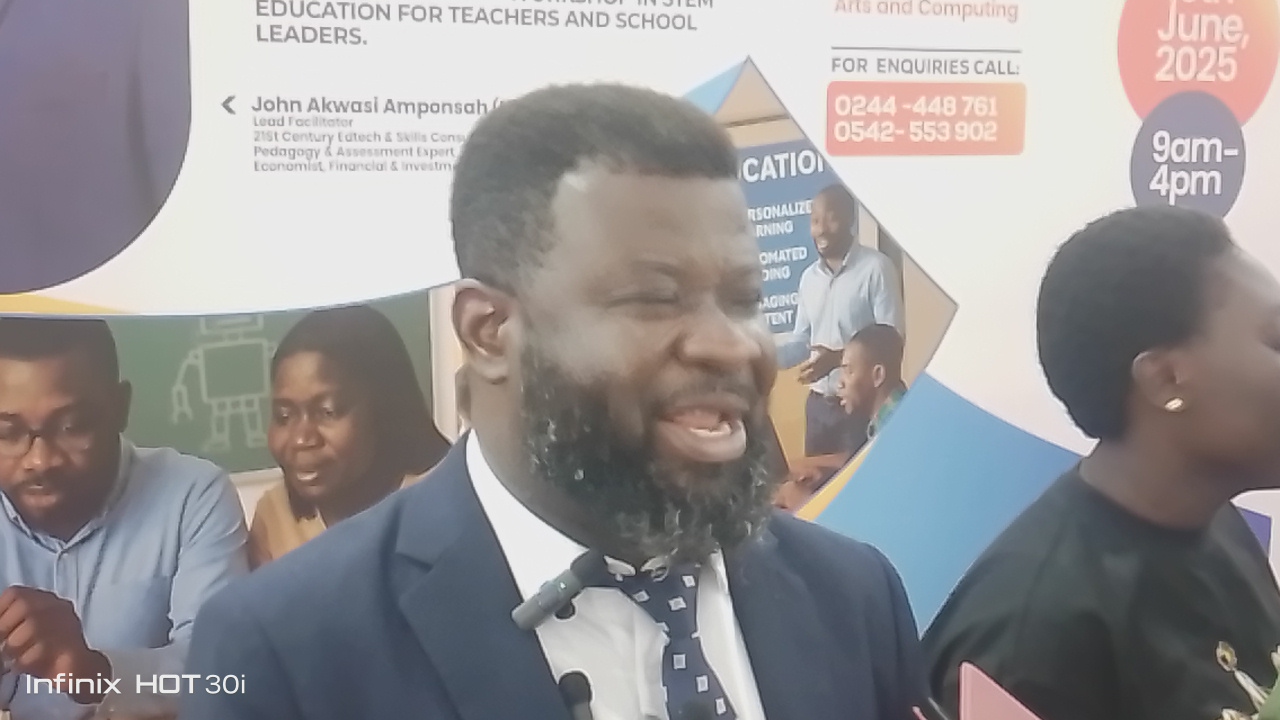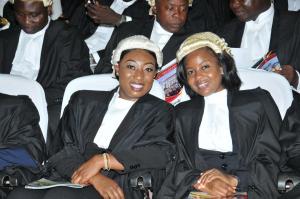Ashanti region educators, stakeholders equipped with new skills to meet 4th industrial revolution demands:

A workshop aimed at equipping teachers with the skills needed to navigate the Fourth Industrial Revolution has been held in Kumasi, addressing a critical gap between the curriculum’s objectives and educators’ preparedness.
The collaborative effort, spearheaded by Ghana Education Service (GES) Kumasi Metro, Brilliant Education Consults, and Brilliant Publications, seeks to empower teachers to effectively deliver a modern, skills-based education.
The workshop dubbed, Ghana EDTECH Workshop 25, was themed “Leveraging AI, Digital Tools, Industrial Materials, and Innovative Pedagogies and Assessment Models to Enhance Learning, Foster Skills Acquisition, and Improved Educational Outcomes. Headmasters, teachers and other field players were equipped with the needed skills at the KNUST during the workshop.
Mr. John Akwasi Amponsah, CEO of Brilliant Education Consult and Brilliant Publications and lead facilitator of the workshop, said, the initiative responds to the evolving demands of the workforce, where skills in fields like Artificial Intelligence and the Internet of Things are becoming increasingly crucial. Organizers emphasized that education must evolve to equip learners with the knowledge and abilities necessary to thrive in both their careers and personal lives.
“We are now in the Fourth Industrial Revolution, where the skills demanded in the workforce have shifted,” said Mr. John Akwasi Amponsah, CEO of Brilliant Education Consult and Brilliant Publications, the program’s main facilitator. “This requires a fundamental shift in how we approach education. Education must equip learners with the skills and knowledge they need to function effectively in both their careers and personal lives.”
Mr. Amponsah highlighted the challenges of today’s “problem-driven era,” including climate change, necessitating a move beyond traditional teaching methods. The emphasis, he explained, must be on cultivating 21st-century skills such as problem-solving, collaboration, communication, and digital literacy. By developing and demonstrating these skills, students are empowered to become transformative and effective citizens.
He emphasized that this transformation in education is a collaborative one, a cycle with multiple players. First comes the government which is the policymaker. Then the National Council for Curriculum and Assessment come next, to design said curriculum, after that you get authors and publishers, who change the syllabus into instructional materials for teachers. After that you get the teacher themselves, which are frontline educators.
Mr. Amponsah then expressed a great concern for the skills gap, for what comes with publishing the syllabus. “This leads me to the problem. Despite NaCCA and GES’ best intentions when they published the syllabus in 2019 expecting students to build valuable competencies, a gap developed; teachers themselves lacked the skills needed to teach these new values”.
By providing these Kumasi teachers with the knowledge and skill sets to effectively teach and implement these new methods in their classrooms, students can become more effective at both learning and practicing these new skills. Mr Amponsah observed.




